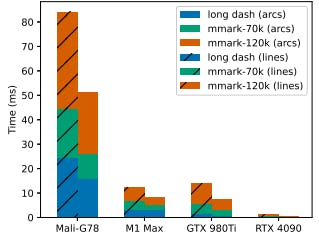Rita El Khoury / Android Authority
TL;DR
- Google’s latest app requirement may soon block the sideloading of apps from unregistered developers.
- The change could impact readers who rely on sideloaded apps on their Android-based eReaders.
- The new requirement will begin rolling out in September 2026.
Google’s latest app requirement claims to protect users, but feels more like a move for greater control. In accordance with the “developer verification requirement,” developers will need to confirm their identities to distribute apps, including outside the Play Store. We’ve covered the change here at Android Authority, and even dug into how it could affect gamers. But eReaders are another corner of the Android ecosystem where this policy may hit harder than expected.
A niche casualty of Google’s security push

Kaitlyn Cimino / Android Authority
On phones and tablets, many users may never notice. On some Android-based eReaders, though, the ripple will likely be felt. For years, one of the most compelling perks of these devices was their flexibility. If a Boox or Bigme eReader didn’t ship with your favorite note-taking app, you could sideload it. If a new RSS reader or comic viewer wasn’t in the Play Store, you could still give it a try. This openness kept smaller manufacturers competitive and gave readers the freedom to experiment.
According to Google, the new requirement is part of an effort to keep users safe from scams and malware. Under these rules, only apps signed by verified developers will be installable, even when sideloaded. Malware is far more common in sideloaded apps, and requiring ID checks raises the bar of entry. But the reality is that security doesn’t come free, and, on the consumer side, it costs users flexibility. That means the niche, unsigned APKs that many eReader enthusiasts rely on could be cut off.
What’s more, the rule only applies to Play Protect-certified devices. Most eReaders are certified, but now that compliance may leave eReaders more locked down than uncertified devices, like gaming handhelds, for instance. In short, the change will make it more difficult for readers to explore beyond what’s preloaded.
Don’t want to miss the best from Android Authority?
Losing one of Android’s advantages

Rita El Khoury / Android Authority
Android’s “openness” has always been a spectrum. Phones wall off certain permissions for sideloaded apps. Chromebooks make you flip through warning prompts. Yet unlike iOS, where sideloading is virtually nonexistent, Android carries the promise of choice. On many eReaders, sideloading has felt virtually frictionless. That quirk made them both more powerful and more fun.
If Google’s identity verification system rolls out as planned in 2026 and beyond, that advantage could be diminished. In practice, that narrows consumer choice and makes it harder for smaller players to stand out. Devices like the Onyx Boox that market themselves as “do-anything tablets with e-ink” suddenly feel slightly more limited.
Google insists hobbyist developers will have a “lighter-touch” path to verification, but details are thin. Until then, it’s hard not to see this as another challenge to Android’s most interesting corners. Yes, we (hopefully) get stronger defenses against malware. But we also lose the quirky, community-driven app scene. KOReader is possibly the most popular example of an app sideloaded by many users that could get caught up in the crackdown. For a platform that built its reputation on freedom, that’s a tough chapter to turn.
Meanwhile, the new Google rule won’t affect Kindles at all. Amazon’s eReaders have always been locked down, so while Android devices lose some flexibility, Kindles ironically feel unchanged and more consistent by comparison. That stability may appeal to mainstream readers who value simplicity over tinkering. But it’s not really a win for Kindle so much as a loss for the competition. If Android eReaders can’t lean on openness, the whole category risks fading into sameness, and that’s a loss for readers who’ve come to enjoy (and expect) more.
Thank you for being part of our community. Read our Comment Policy before posting.











